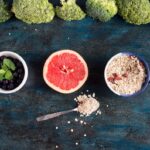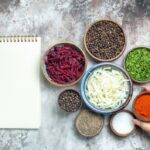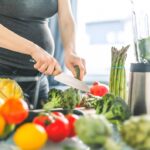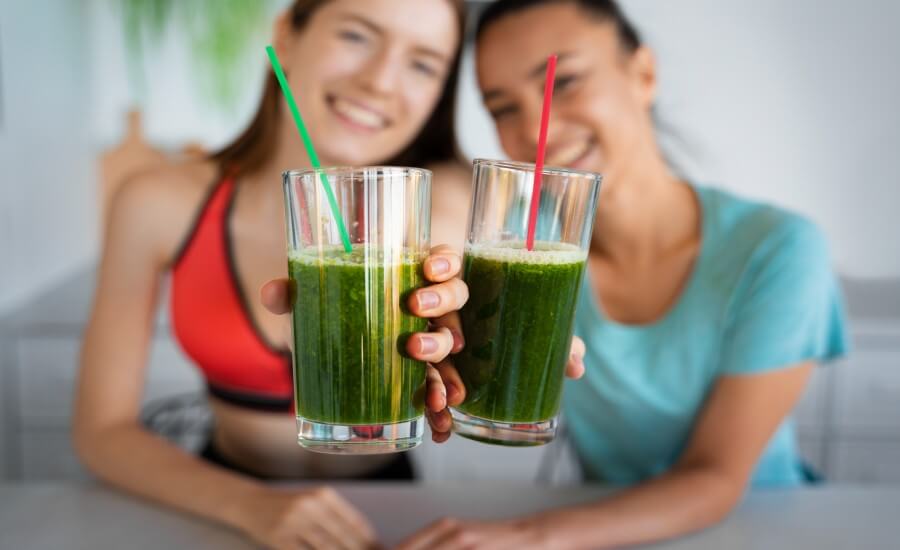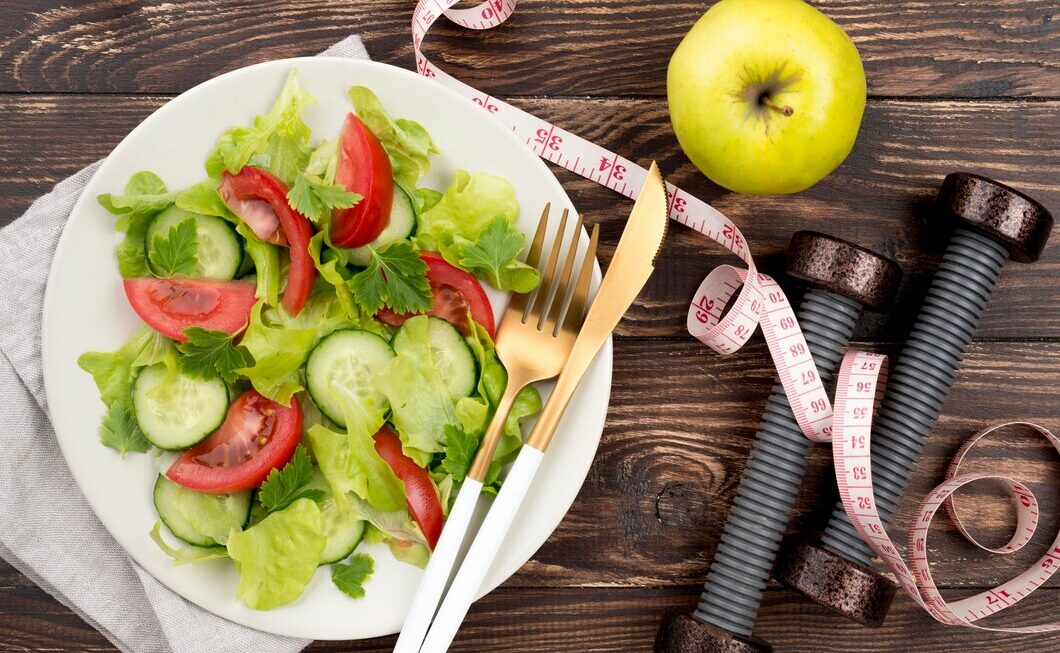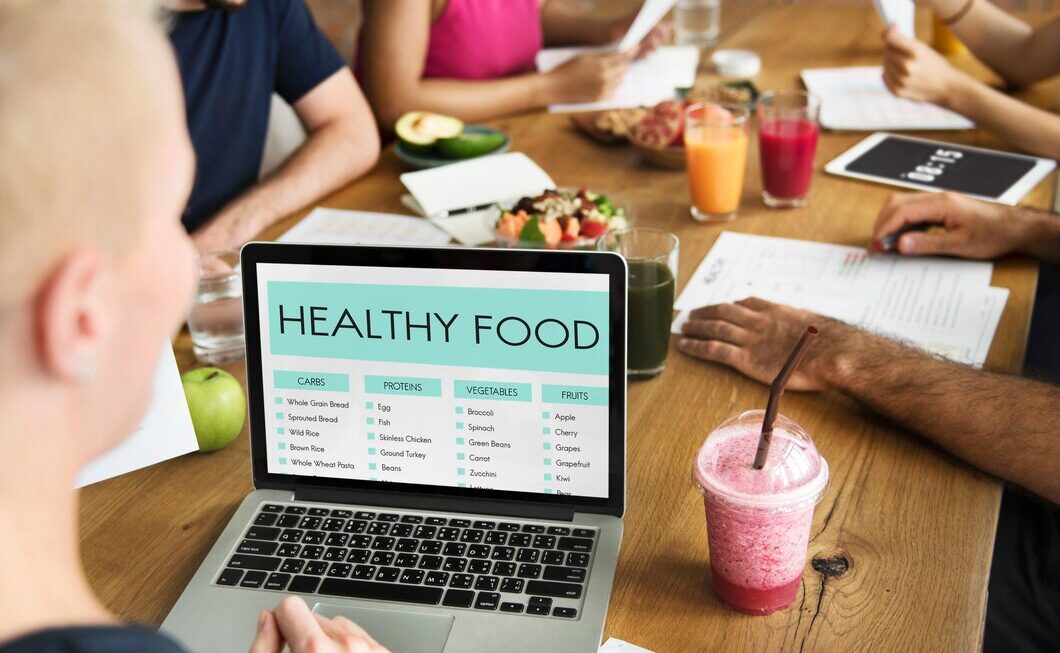The promise of a quick fix is tempting, and the wellness world is saturated with claims about “detoxifying” vegan smoothies and “cleanses” designed to purify the body and reset health. Especially appealing during hot weather or after periods of indulgence, these vibrant blends often feature ingredients lauded for their cleansing properties. However, it’s crucial to separate marketing hype from physiological reality. This analysis critically examines the concept of “detox smoothies,” debunking common myths and exploring the claims from nutritional, ethical, environmental, and practical perspectives. We will clarify how your body actually handles detoxification and how nutrient-rich vegan smoothies can play a role in supporting these natural systems and overall health – not as a magical cleanse, but as part of a balanced, sustainable lifestyle relevant anywhere, including here in Jaipur.
LENS 1: Nutritional Analysis (Debunking Detox, Supporting Systems)

From a scientific standpoint, the idea that specific foods or drinks can “detoxify” your body is largely unfounded. Your body possesses highly efficient, built-in detoxification systems that work continuously.
- Your Body’s Natural Detox Experts: Your liver is the primary detox organ, utilizing complex Phase I and Phase II pathways to neutralize and prepare harmful substances for excretion. Your kidneys filter waste from the blood into urine. Your lungs expel volatile compounds. Your skin eliminates some waste via sweat. Your gut prevents absorption of many harmful substances and eliminates waste. These systems don’t accumulate “toxins” that need flushing via a special smoothie or cleanse.
- What “Detox” Ingredients Actually Do: Ingredients commonly found in “detox smoothies” – leafy greens (like spinach/palak), lemon, berries, ginger (adrak), turmeric (haldi), chia/flax seeds – are healthy, but not because they actively “cleanse.”
- Antioxidants (Berries, Greens): Combat oxidative stress, a byproduct of normal metabolism and environmental exposures, protecting cells (including liver/kidney cells) from damage.
- Fiber (Fruits, Veg, Seeds): Supports gut health, promoting regular elimination of waste and feeding beneficial bacteria crucial for the gut-brain axis and overall health.
- Vitamins & Minerals (Greens, Fruits, Seeds): Provide essential cofactors for the liver’s detoxification enzymes (e.g., B vitamins, selenium, zinc) and support kidney function.
- Hydration (Fruits, Vegetables, Liquid Base): Crucial for kidney function and flushing water-soluble waste via urine.
- Specific Compounds (e.g., Sulforaphane in crucifers, Curcumin in turmeric): May support liver enzyme function or have anti-inflammatory effects.
- Key takeaway: These ingredients support your body’s natural detox systems, they don’t perform detoxification themselves.
- Risks of Smoothie “Cleanses”: Relying solely on smoothies, especially for extended periods (“cleanses”), is nutritionally risky:
- Inadequate Protein & Fat: Leads to muscle loss, unstable energy, impaired hormone function.
- Calorie Deficit: Can cause fatigue, dizziness, metabolic slowdown.
- Blood Sugar Swings: High-fruit smoothies without sufficient fiber, protein, and fat can cause energy spikes and crashes.
- Nutrient Deficiencies: Lacks the full spectrum of nutrients found in a varied diet.
- Disordered Eating Trigger: Can foster unhealthy relationships with food, promoting cycles of restriction and potential rebound eating.
- The Healthy Role of Smoothies: Nutrient-dense smoothies can be a part of a healthy diet, providing vitamins, minerals, fiber, and hydration conveniently. The key is balance (including protein/fat sources) and consuming them alongside, not instead of, whole meals. Instead of a ‘detox’ smoothie, how can you create a smoothie specifically designed to support liver or kidney function with nutrients like antioxidants and hydration?
Nutritional Deep Dive: How the Liver Actually Detoxifies & Nutrients That Help
The liver’s detox process involves two main phases:
- Phase I: Enzymes (Cytochrome P450 family) modify toxins (medications, pollutants, metabolic byproducts) usually making them more water-soluble but sometimes temporarily more reactive. Requires B vitamins (B2, B3, B6, B12, Folate), antioxidants (Vit C, E, carotenoids), and minerals.
- Phase II: Enzymes conjugate (attach) other molecules (like glucuronic acid, sulfate, glutathione) to the modified toxins, making them non-toxic and easily excretable via bile or urine. Requires amino acids (from protein), sulfur compounds (from garlic, onions, crucifers), magnesium, selenium, and antioxidants like glutathione. A balanced diet rich in diverse plant foods provides the necessary cofactors for both phases to function optimally. Starvation or restrictive cleanses can impair these pathways.
Voice of Experience (Medical Doctor & Skeptic): “The concept of ‘detox diets’ or ‘cleanses’ has no scientific basis. Healthy bodies are equipped with brilliant detoxification systems in the liver and kidneys that work 24/7. These smoothie ‘cleanses’ are often nutritionally inadequate, potentially harmful, and prey on pseudoscience. Focus on supporting your organs with a consistently healthy, balanced diet, adequate hydration, and avoiding actual toxins like excessive alcohol or smoking.” – Dr. Priya Kapoor, MD
LENS 2: Ethical Framework (Marketing vs. Well-being)

The marketing surrounding “detoxifying” vegan smoothies and cleanses raises significant ethical questions.
- Exploiting Health Anxieties: Detox marketing often taps into fears about environmental toxins, modern diets, and body image, creating a sense of bodily “impurity” that their product or protocol supposedly fixes. This can be manipulative and harmful.
- Misleading Health Claims: Promises of flushing toxins, rapid weight loss (that isn’t just water), curing ailments, or providing unique “cleansing” effects are typically unsubstantiated by credible scientific evidence. Profiting from such claims is ethically dubious.
- Commodification of “Cleanliness”: The industry frames health and purity as something that can be bought in a bottle or a short-term program, often at inflated prices, rather than cultivated through sustainable habits. This can create health disparities based on income.
- Contradiction with Vegan Ethics?: While veganism aims to reduce harm, promoting potentially unhealthy, nutritionally deficient, or pseudoscientific “cleanses” under a vegan banner could be seen as causing a different kind of harm – to human health and financial well-being, potentially undermining the credibility of evidence-based vegan health messages. Does the marketing for detox products sometimes feel predatory or misleading compared to promoting genuinely healthy habits?
Hidden Benefits (of Rejecting Detox Culture):
Choosing not to participate in detox fads brings benefits: saving money, reducing anxiety about food and perceived bodily “toxicity,” developing a healthier relationship with eating based on nourishment rather than restriction/purging, and freeing up mental energy to focus on genuinely health-promoting actions.
Voice of Experience (Consumer Health Watchdog): “The ‘detox’ industry is largely unregulated and often relies on pseudoscience and powerful marketing narratives. Consumers should be highly skeptical of products or diets promising to ‘cleanse’ or ‘detoxify.’ These terms have no medical meaning in this context. Focus on evidence-based nutrition advice from qualified professionals, not on expensive fads.” – Mr. R. Gupta, Health Transparency Foundation
Critical Reassessment: The Entire Premise
The ethical discussion moves beyond specific products to question the validity and impact of the entire multi-billion dollar “detox” and “cleanse” industry, which is fundamentally built on a scientifically flawed premise about how the human body works.
LENS 3: Ingredient Science & Environment (Sustainable Support vs. Fad Waste)
Analyzing common “detox” smoothie ingredients reveals their real properties and the environmental context of their sourcing versus sustainable alternatives.
- Ingredient Realities:
- Lemon/Citrus: Provide Vitamin C (antioxidant) and aid hydration. They don’t “alkalize” the body (body pH is tightly regulated) or “flush fat.”
- Ginger/Turmeric: Contain compounds (gingerol, curcumin) with proven anti-inflammatory and antioxidant properties, supporting overall health. They don’t specifically “detox.” Both are readily available in India.
- Leafy Greens (Spinach, Kale): Packed with vitamins (K, A, C, Folate), minerals (iron, calcium), and antioxidants. Support general health and provide cofactors for liver enzymes.
- Chia/Flax Seeds: Excellent sources of fiber (gut health, blood sugar regulation) and ALA Omega-3 fats (anti-inflammatory).
- So-called “Superfoods” (Spirulina, Chlorella, Acai): Can be nutrient-dense but often expensive, imported (high food miles), and their unique “detox” claims are usually exaggerated. Local alternatives like Amla (Indian gooseberry – extremely high in Vit C) or Moringa offer potent nutrition more sustainably in the Indian context.
- Environmental Considerations:
- Food Miles & Packaging: Trendy detox ingredients or pre-made cleanse programs often involve imported goods with high transport emissions and significant plastic packaging (juice bottles, powder tubs).
- Sustainable Alternatives: Making smoothies at home using local, seasonal produce drastically reduces food miles and packaging waste. Prioritizing ingredients like local bananas, mangoes (seasonal), papayas, gourds, amla, or using widely available staples like ginger and turmeric is far more sustainable than relying on imported powders or berries. Using reusable cups and straws is essential. Could you replace an expensive, imported “superfood” powder in a smoothie recipe with a nutrient-dense local ingredient like amla or fresh turmeric?
Market Transformation Map Suggestion: Two trend lines: One showing the volatile, often short-lived spikes in popularity of specific exotic “detox superfoods.” The other showing the steady, consistent consumer purchasing of basic smoothie ingredients like bananas, spinach, and plant milks.
Voice of Experience (Sustainable Food Advocate): “Detox fads often fuel unsustainable consumption – importing exotic ingredients with questionable benefits and generating lots of plastic waste from cleanse kits. True sustainable wellness involves using whole, local, seasonal ingredients. Make a supportive smoothie with local greens and ginger, not expensive imported powders in plastic tubs.” – Kavita Sharma, Eco-Nutri Initiative
LENS 4: Everyday Practitioner’s Experience (The Allure & Aftermath)

Understanding why people try detox smoothies and what the experience is really like helps shift towards healthier alternatives.
- The Appeal: People often seek detoxes/cleanses for a “fresh start,” quick weight loss (often desired after festivals or holidays), perceived health benefits pushed by influencers, or a sense of control over their bodies. The marketing promises rapid, effortless results.
- The Reality of Cleanses: Initial effects might include temporary debloating (from lack of solid food) or a perceived energy shift (placebo or blood sugar fluctuations). However, this is often followed by hunger, fatigue, irritability, headaches, nutrient deficiencies, and poor concentration. Weight loss is primarily water and potentially muscle, quickly regained upon returning to normal eating. It can foster an unhealthy relationship with food.
- Shifting to Supportive Smoothies: The sustainable path involves incorporating balanced smoothies into a regular diet. These are designed for nourishment, not deprivation.
- Focus: Providing vitamins, minerals, fiber, hydration, protein, and healthy fats.
- Goal: Supporting natural body functions, providing sustained energy, aiding digestion, promoting overall well-being.
Supportive Vegan Smoothie Ideas (Not “Detox”):
(Focus on balance: include fruit/veg + protein source + healthy fat source + fiber)
- Green Hydrator (Good for Rajasthan Heat):
- 1 cup Cucumber (Kakdi)
- Handful Mint (Pudina) & Spinach (Palak)
- 1/2 cup Plant Milk or Coconut Water
- 1 tbsp Chia Seeds
- Squeeze of Lime
- Optional: Small piece of Ginger (Adrak)
- Berry Antioxidant Boost:
- 1 cup Mixed Berries (fresh or frozen)
- 1/2 cup Unsweetened Plant Milk
- 1/4 cup Silken Tofu or Vegan Yogurt
- 1 tbsp Flax Seeds
- Optional: Handful of spinach (won’t taste it)
- Turmeric Ginger Anti-Inflammatory Support:
- 1 cup Plant Milk (e.g., almond or soy)
- 1/2 Frozen Banana
- 1 tbsp Hemp Seeds or Almond Butter
- 1 tsp Grated Fresh Turmeric (Haldi) or 1/2 tsp powder
- 1/2 tsp Grated Fresh Ginger (Adrak)
- Pinch of Black Pepper (helps curcumin absorption)
- Optional: Orange or Amla for Vitamin C boost.
What satisfying, balanced smoothie could you incorporate into your routine instead of feeling pressured to do a restrictive ‘cleanse’?
Daily Impact: Cleanse Day vs. Balanced Day
- ‘Cleanse’ Day: Multiple servings of low-calorie, low-protein/fat juice or thin smoothie. Likely results: hunger, fatigue, blood sugar swings, nutrient inadequacy.
- Balanced Day: Regular balanced vegan meals plus one supportive, balanced smoothie (with protein/fat/fiber) as a snack or part of a meal. Likely results: sustained energy, satiety, adequate nutrient intake, supports overall health.
Voice of Experience (Former Cleanse Follower): “I used to do juice cleanses thinking I was ‘detoxing.’ I’d feel awful – tired, hungry, irritable – and then binge afterwards. Since I started just eating balanced vegan meals and having a real smoothie with protein and seeds when I want one, I have so much more energy and feel genuinely healthier, without the crazy cycle.” – Neha Gupta, Marketing Manager
Alternative Approaches: True Health Support
Instead of “cleansing,” focus on genuinely supporting your body’s systems daily: stay well-hydrated with water, eat plenty of fiber-rich whole plant foods, prioritize sleep, manage stress, limit alcohol and processed foods, and get regular exercise. These actions truly support your natural detoxification pathways.
PERSPECTIVE INTERSECTION MATRIX
- Nutrition & Marketing (Lens 1 & 2): Understanding the lack of scientific basis for detox claims (Lens 1) reveals the unethical nature of much detox marketing (Lens 2).
- Ethics & Health (Lens 2 & 1/4): Promoting unsubstantiated cleanses (Lens 2) poses risks to nutritional health and can lead to negative practical experiences (Lens 1, 4). Ethical practice involves promoting evidence-based well-being.
- Environment & Fads (Lens 3 & 4): Unsustainable sourcing and waste associated with detox fads (Lens 3) are driven by consumer demand influenced by marketing and the allure of quick fixes (Lens 4).
- Science & Reality (Lens 1/3 & 4): Scientific understanding of physiology and ingredients (Lens 1, 3) contrasts sharply with the lived experience and often negative outcomes of restrictive detox cleanses (Lens 4).
- Sustainable Health (All Lenses): Rejecting detox myths leads to focusing on balanced nutrition (Lens 1), mindful consumption (Lens 2), sustainable ingredient choices (Lens 3), and practical, enjoyable eating habits (Lens 4).
MISCONCEPTION ANALYSIS
| Misconception | Reality |
| The body accumulates harmful “toxins” that require periodic flushing/cleansing. | Healthy liver, kidneys, lungs, skin, and gut continuously neutralize and eliminate waste products and environmental exposures. They don’t store “toxins” in a way that requires a specific food/drink cleanse. Support these organs, don’t try to flush them. |
| Certain smoothie ingredients (lemon, cayenne, greens) actively “detoxify” you. | These ingredients provide nutrients (Vit C, antioxidants, minerals, fiber) and hydration that support the optimal functioning of your natural detoxification organs (liver, kidneys). They don’t have inherent “detoxifying” powers themselves. |
| Smoothie “cleanses” are a healthy way to lose weight quickly. | Weight loss on such cleanses is primarily water loss and potentially muscle mass due to severe calorie/protein restriction. It’s not sustainable fat loss and is often regained quickly. It can be nutritionally dangerous. |
| Feeling weak, tired, or headachy during a cleanse means “it’s working.” | These symptoms are signs of energy deprivation, dehydration, electrolyte imbalance, or blood sugar instability – not your body effectively “releasing toxins.” It’s your body signaling distress from inadequate nourishment. |
| Vegan automatically means “detoxifying” or “clean.” | A vegan diet eliminates animal products, but it can still be high in processed foods, refined sugars, or unhealthy fats if not well-planned. Focusing on whole, unprocessed plant foods is key for supporting health, not just being vegan. |
KEY TURNING POINTS
- Ancient Concepts: Historical ideas of purification and fasting, often misinterpreted in modern “detox” marketing.
- Juicing Boom & Celebrity Endorsements: Popularization of juicing and specific “master cleanses” promoted by celebrities in the late 20th/early 21st century.
- Rise of Commercial Cleanse Companies: Businesses built around selling expensive pre-packaged juice or smoothie cleanse programs.
- Influencer Marketing: Social media influencers promoting “detox teas,” smoothies, and restrictive protocols, often without scientific basis or disclosure of sponsorships.
- Scientific Pushback: Increasing debunking of detox myths by medical professionals, registered dietitians, and science communicators in mainstream media and online.
- Shift Towards Gut Health & Sustainable Wellness: Growing focus on supporting the gut microbiome and overall health through balanced, sustainable habits rather than extreme, temporary fixes.
SYNTHESIS & RECOMMENDATIONS
The allure of “detoxifying” vegan smoothies and cleanses is strong, fueled by clever marketing and the desire for quick health fixes. However, the scientific reality is clear: your body possesses remarkable natural detoxification systems that do not require specific “cleansing” protocols. The concept of food-based detox is largely a myth. Instead of pursuing restrictive, potentially harmful cleanses, focus on supporting your body’s inherent capabilities. Nutrient-dense vegan smoothies, when balanced with protein, healthy fats, and fiber, can be a valuable part of a healthy, varied diet. They provide vitamins, minerals, antioxidants, and hydration that nourish your liver, kidneys, and gut – the real detox powerhouses. Ditch the “detox” and “cleanse” mentality; embrace consistent, balanced, whole-food vegan eating for genuine, sustainable well-being.
Recommendations for Supportive (Not Detox) Smoothies:
- Focus on Balance: Always include sources of protein (seeds, nuts, plant milk, tofu, vegan protein powder) and healthy fats (avocado, nuts, seeds) alongside fruits/vegetables to ensure satiety and stable blood sugar.
- Prioritize Fiber: Use whole fruits and vegetables (including skins where edible), oats, chia seeds, or flax seeds instead of just juice.
- Hydrate Wisely: Use water, coconut water, or unsweetened plant milk as your base.
- Incorporate Nutrient-Dense Foods: Include leafy greens, berries, ginger, turmeric, amla, or other nutrient-rich local/seasonal produce known to support overall health.
- View as Part of Your Diet: Enjoy smoothies as a convenient snack, breakfast component, or post-workout recovery drink – not as a sole source of nutrition for extended periods.
- Listen to Your Body: Pay attention to how different smoothie combinations make you feel in terms of sustained energy and digestion.
- Reject the Hype: Be critical of marketing claims promising “detox” or “cleansing.” Focus on evidence-based nutrition for genuine health support.
FURTHER AREAS OF EXPLORATION
- How the Liver Works: Understanding Natural Detoxification
- Supporting Kidney Health Through Diet and Hydration
- The Gut Microbiome: Your Body’s Inner Ecosystem
- Debunking Popular Diet Myths (Detox, Alkaline, etc.)
- Building Sustainable Healthy Eating Habits Beyond Fads
- Balanced Vegan Smoothie Recipes for Sustained Energy
